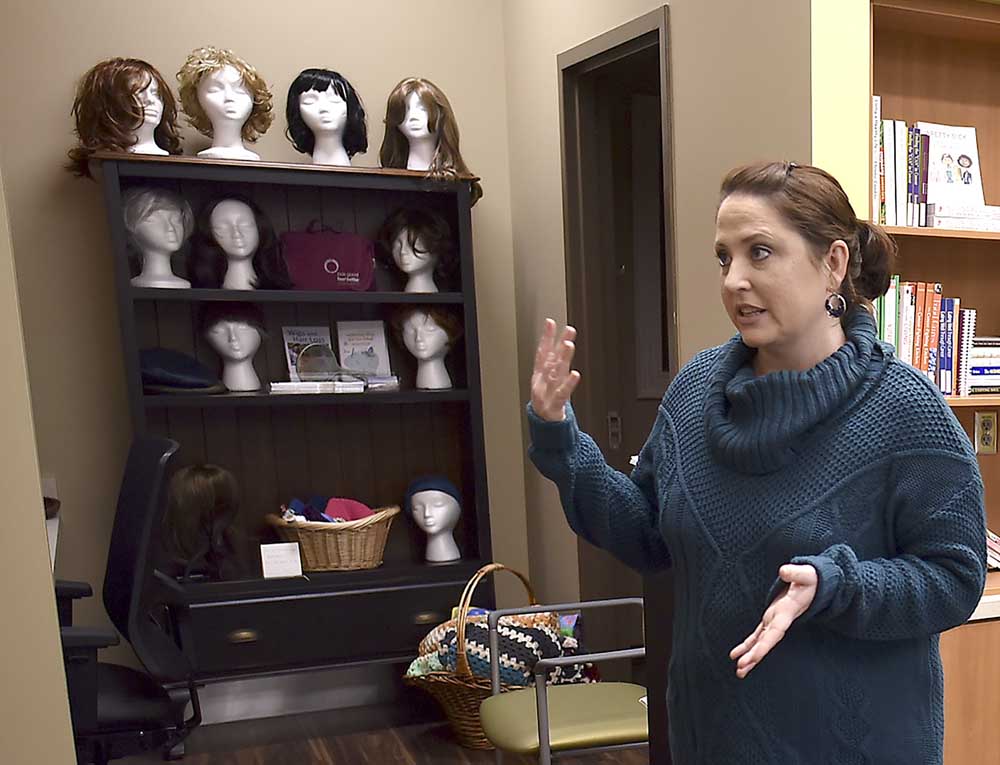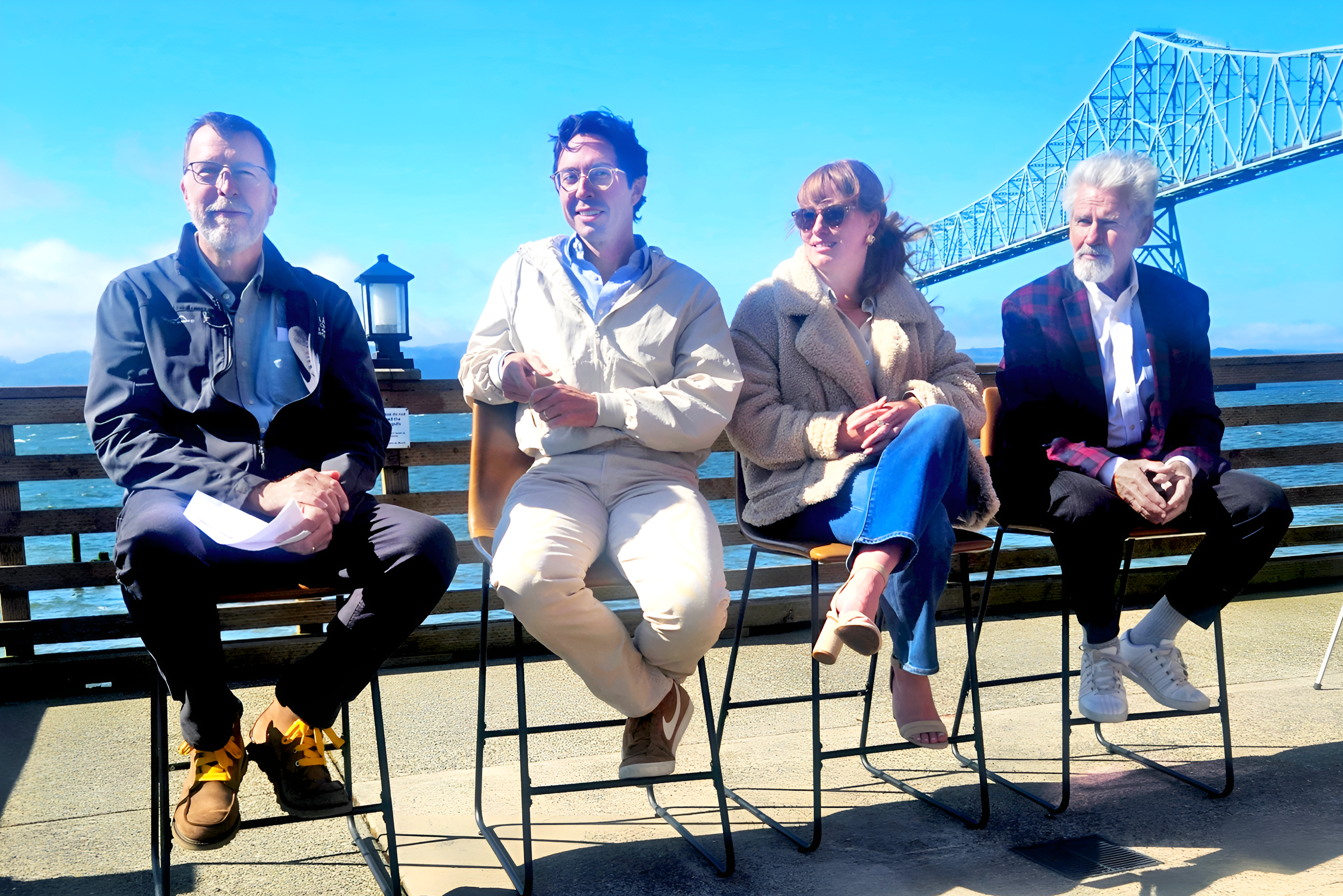Treatment close to home
Published 3:21 am Friday, November 17, 2017

- Kari Smith shows where at the cancer center in Astoria patients can be fitted for wigs and receive other supportive services.
Small-town assumptions about Astoria were always a barrier for Kari Smith as she sought cancer treatment.
Based on the experiences of family and friends decades earlier, she was advised to seek treatment in large cities, which typically house some of the world’s best medical equipment.
“People had told me all of these horrible things about small-town doctors,” Smith said. “Somebody one time told me that if I stayed here in Astoria to get treatment I would die.”
The recent opening of Columbia Memorial Hospital and Oregon Health & Science University’s Knight Cancer Collaborative has nixed that theory.
In 2013, when she was 36 years old, Smith felt a radiating pain in her chest and neck area. Her mother, grandmother, aunt and great-grandmother had all suffered from cancer, so she was concerned.
Several doctors told her not to be overly concerned, but the pain persisted. Eventually a surgeon in Portland found a lump in her chest following a mammogram and said a minor procedure would remove the cancer completely. She was skeptical.
“It didn’t sound right,” she said. “It sounded too easy.”
Finally, another doctor was able to determine that the cancer had spread into her lymph nodes. A double mastectomy and four rounds of chemotherapy later, Smith believed she had conquered the disease.
“They said, ‘Yeah, start living your life and be happy,’” she said.
But the pain returned last year, this time in a different area of her chest. She and her husband, Mike, a Clatsop County sheriff’s sergeant, drove up to the Seattle Cancer Care Alliance at the University of Washington Medical Center, considered one of the top cancer hospitals in the country.
Smith received high-quality care there, but the lengthy commute and time away from home wore on the family. Expenses racked up, her husband missed time at work and their children waited for their parents to come home.
Smith and her husband live in Astoria and raise four children ages 9 to 18 years old.
“My home life was in shambles because I was never home,” Smith said. “It was really hard on my kids. They would just cry and ask me, ‘Why are you leaving again?’”
In previous trips to the center, she would need to drive herself so that her husband could take care of the kids.
“That’s really not cool, but I had no one to take care of the kids for a week,” Mike Smith said. “I’m sure it had to be rough on her to be alone up there.”
Because it is located in a major city, the hospital attracts a high volume of patients. “Experience comes with volume, so I wanted to get her what was the best treatment possible at the time,” Mike Smith said.
But Smith was just one of many people seeking treatment there. On a given day, upward of 100 people could be waiting in the lobby for treatment.
“It’s a wonderful place, but they don’t know who you are,” Smith said. “You might get to know one nurse.”
Tests revealed that the cancer had spread into her liver, lungs, bones, sternum and the lining of her peritoneum. Her calcium levels were also double what they should have been.
“It was just shocking,” Smith said. “We were so surprised.”
Smith returned to Astoria two weeks later, but she still felt sick for a few days. She went to Columbia Memorial, where people asked her if she would be interested in seeking treatment at a new facility that was operating but not officially opened.
Despite hearing about the updated technology at the cancer center, Smith — recalling previous advice from friends and family — was leery.
One day, Dr. Jennifer Lycette, the medical director of oncological services at the new cancer center, walked into Smith’s room.
After reading a pathology report, Lycette told Smith that a receptor in her body was making the cancer grow at a more rapid rate. She prescribed several drugs to specifically target the receptor.
The Smiths recognized Lycette’s involvement as a turning point in Kari’s treatment.
“She is so knowledgeable that she doesn’t even need to be here,” Mike Smith said. “Those people who stay in a small community like ours are a huge blessing.”
Within a month, Smith was feeling healthy again.
“It’s not perfect, but they’re always on top of it,” she said.
Her life the past few months, despite the occasional small relapse, has been as stable as it has been since her diagnosis, she said. She now works one day a week at Bridgeport Oral Surgery in Warrenton as a surgical assistant.
When she enters a treatment phase, Smith will visit the cancer center for a few hours once every week or two. If necessary, she can also go to the center for minor procedures.
While there, she makes use of features such as a chemotherapy infusion room, which includes lounge chairs that face the Columbia River. She has also enjoyed peering at X-rays on a large television screen — instead of a computer screen — as well as a resource center that includes a wide range of customizable wigs.
Smith’s face beams when she speaks about her interactions with staff. The facility’s small size has allowed her to develop relationships with nearly everyone who works in the building.
“They cry with you and they, you know, help you with everything,” Smith said. “It’s just different. I’d never been anywhere like that before.”
Smith usually goes to treatment while her children are at school, a drastic change from the time commitments that her therapy once required.
“Now they don’t even realize I’m getting treatment because they’re oblivious, I guess,” Smith said about her children with a laugh. “It’s kind of nice that we’ve resumed a normal type of life now.”
She still advises patients in a similar situation to seek second opinions, as she did. But she also points to the cancer center’s proximity to the coast and support — especially for women diagnosed before turning 40 years old — as reasons to consider the new facility as a viable treatment option.
After years of skepticism and struggle, Smith has squashed her fears of seeking treatment close to home. The horror stories she had always heard about small-town cancer treatment linger, but are no longer a blockade.
“We didn’t have treatment like this then.” Smith said. “I wouldn’t hesitate to recommend it to them or encourage them to come here.”






